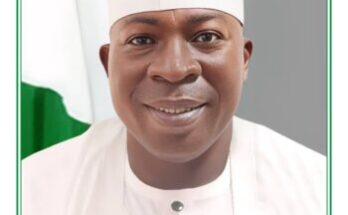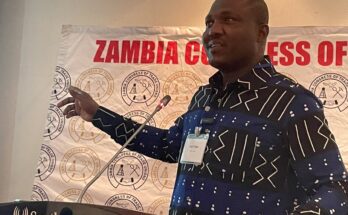Prof Abubakar Olanrewaju Sulaiman is the director general of National Institute for Legislative and Democratic Studies (NILDS ). In this interview with UMAR BAYO ABDULWAHAB and select journalists, he talks about youth restiveness and sundry issues.
With your experience in office, how do you think Nigeria’ s democracy can be deepened?
Sixty years of independence is full of ups and down with various challenges and progresses, but quite frankly, if we have not goten anything at all in terms of deepening democracy, our 21 experience of uninterrupted democratic dispensation portends Nigeria has a future, a future of democracy that despite our differences, we can still make tremendous progress in democratic practice and procedure. In my 15 or 16 months at the institute, we have seen some politicians who are ready to learn about democratic tenets, we have seen the people, politicians, parliamentarians that are ready to let go, we have seen the people who want to conduct election without necessarily going to litigation; thereafter, we have seen consensus among contestants. What we had in 2015, we never had it before in this country. The election we had in Edo, we never had it before now, the Ondo election was not bad. So, I think we are making tremendous progress.
What does EndSARS protest portends for the future of this country?
It is simple! What it portends is that as long as we practise democracy, we must allow people’s will to prevail. It portends that we have gone beyond the military mentality where people that handle weapons believe that they are at liberty to make use of the weapons the way they feel. It suggests that our policemen needs reorientation. This is a police force that had their root back to the military and colonial era but with uninterrupted democratic dispensation of 21 years, it shows that our law enforcement agencies need to be inculcated with the spirit of democracy in their operations. The police force should be civil, the army could be uncivil but the police should be civil. It calls for reorientation and reformation beyond mere cosmetic change of name.
INEC has released timetable for 2023 elections, some political parties have been deregistered while some people are calling on the National Assembly to look into the amendment of Electoral Act. What is your take on these issues?
There is no doubt we cannot survive our democracy with the kind of ‘jankara’ political parties we have in this country. We have to cut the number down. A lot of political parties we have are ‘shoprite’ political parties, if I may use that language. Just one shop, no office, no followers, no members and no disciples. I think we need some legal frameworks to prune them down. We must have two or three vibrant political parties that can represent the various opinions of people of this country. We cannot survive with 60, 70 or 80 political parties; it does not make sense at all. If we must practice democracy the way it should be, we don’t need all those ‘shoprite’ political parties; so, we need serious electoral reform. The National Assembly is looking into it and I want to believe that with the kind of National Assembly we have now, we should see something plausible in terms of result that would come out as far as electoral reform is concerned.
Sir, we saw you having a private meeting with the governor. What did you discuss with him?
The governor has been my long time friend as well as brother. We were in the same political parties; we have the same ideology and that ideology we still share. It is private, it is personal, it is friendship and brotherhood; it does not go beyond that.
As a major stakeholders in Nigeria politics, what advice do have for Nigerians on the issue of insecurity?
Government has done its own; security is everybody’s business. My advice to Nigerians is that we should not see security or insecurity as government business alone. Boko Haram members reside somewhere, militants reside somewhere and kidnappers reside somewhere. People know them. We must be able to expose them, but as long as we are not ready to support the security agencies in exposing all these criminals, insecurity will strive in this country. And I keep on saying it that these security agencies are not God; they only see what they could see within their own limited knowledge, unless they use intelligence. So, my advice to Nigerian people is that we must see security agencies as our people; we must assist them with useful information. Government could budget trillions for them, if people do not support and assist them in terms of useful information and intelligence, we cannot get solution to various situations to various threats we find ourselves. Before threat gets into our communities, we must be able to identify it. To identify it therefore, people must assist before they now do what is called threat assessment. So, we must assist them with useful information. The various traditional rulers must be involved, religious leaders, Mallams, pastors must also come in. Our clergymen should support what government is doing, we must see security as our business. Holistically, we must all address it. As a matter of fact, we must assist government in addressing insecurity in this country.
On ASUU strike, what do you think can be done?
The trade dispute on campuses between ASUU and government on the other hand is being resolved. I want to believe that the National Assembly has waded into the crisis. It is a persistent thing. Even after this, another one will still come because resources are very limited and demands of academics are unlimited and when you give to them, it is in the best interest of Nigeria people, our students and our children.
Government needs to have one and let go the other one as it is not an easy thing to do. What we have today as TETFUND, UBEC emanated from ASUU struggle. Nigerians should not see academics or trade unionists as hoodlums. These are intellectuals training our children. Therefore, their demands should be seen from the objective point of view. To my collegues in ASSU, let’s appreciate government predicament, we have lockdown and prices of oil at the international market have gone down. We are resorting to getting loans to survive and even to implement our budget. When you have these kind of crisis, I think we just have to appreciate ourselves. The ones the government could do, they should accept it, the ones they cannot do, they should let go. And with the intervention of the Senate president, the speaker of the House, it is being resolved and I want to believe in next one week or so, ASUU will call off the strike.
As a former minister of national planning, how do you think we can address youth uenployment ?
Unless the state governments take the bull by the horn in addressing joblessness among the youths, the problem of insecurity and other social vices bedeviling the country would be difficult to address.Many state governments believe that the issue of job creation lies solely on the federal government. Many state governments did not have agenda for engaging youths productively. When I aspired to be governor of Kwara state, I developed a model which can help address the issue of yourh unemployment. The federal government alone cannot solve the problem of job creation for unemployed youths, the state governments must develop a sustainable youth agenda policy that would be geared towards addressing youth unemployment. A situation whereby the federal government was doing its best while the states governments were doing nothing as a complementary role, addressing the problem of joblessness among the youths may be a mirage. As long as we allow only the centre to make policy on jobs creation for youth with the state governments doing little or nothing, we shall continue to have the problem of joblessness among the youths.
Will you say the ongoing #ENDSARS protest has connection with youth umployment?
How many of the protesters are civil servants, how many of them are industrialists? When they have such opportunity to let their voices heard, what do you expect? So, when you have engaged them productively, I don’t see any reason for them to go on the street protesting over issues that could be resolved amicably.




